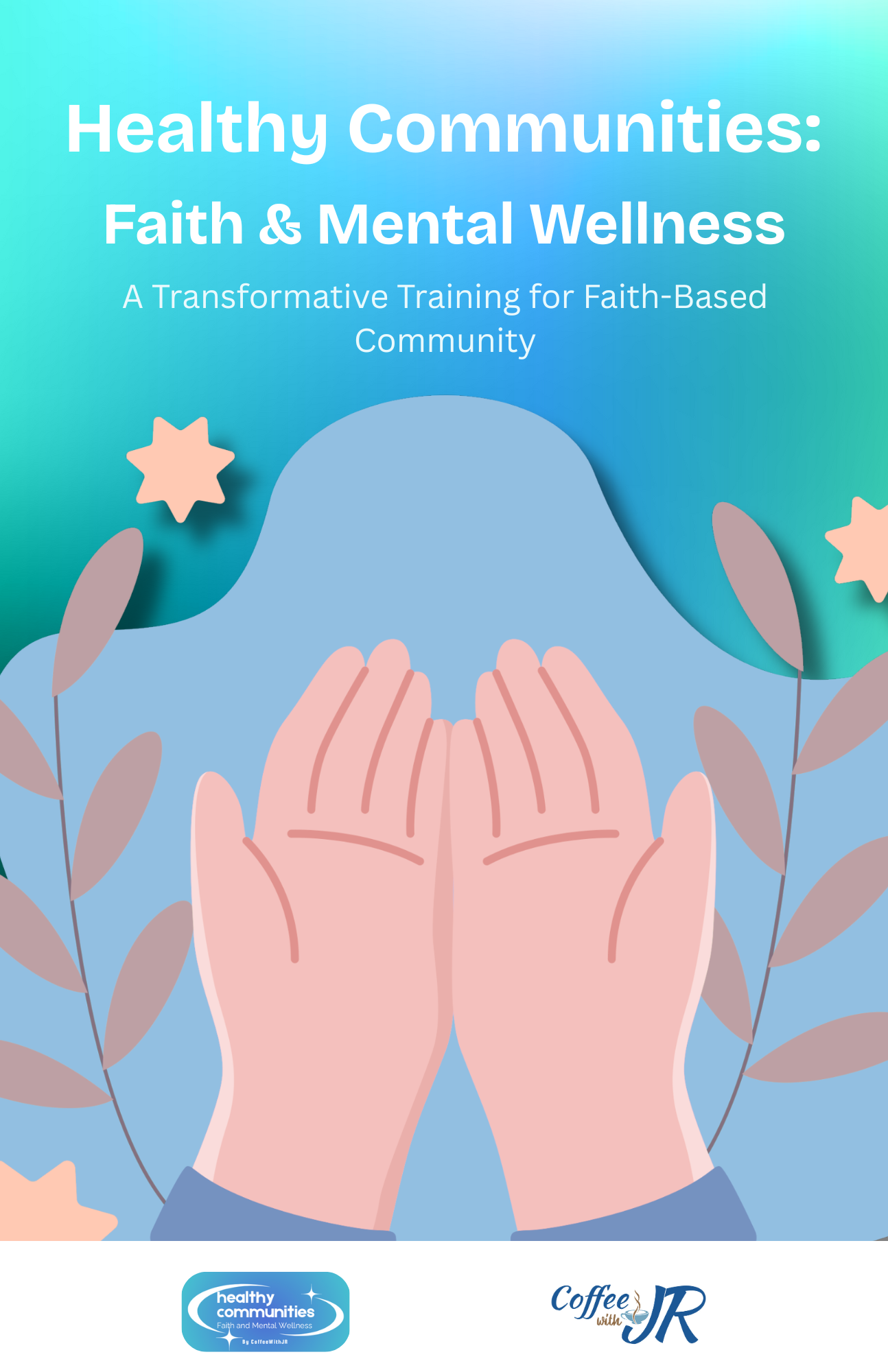
BRIDGING FAITH AND MENTAL HEALTH – FOR MY MOTHER
Earlier this year, I had the honor of receiving a contract from the Los Angeles County Department of Mental Health for a project titled “Healthy Communities: Faith and Wellness.” The mission of this initiative is to normalize the connection between mental health and spirituality, a relationship that is often misunderstood or overlooked in many communities.
As part of this project, I was tasked with developing a comprehensive training manual and facilitating six non-clinical educational workshops for faith leaders, mental health professionals, educators, and community members. Each of the six workshops will focus on one essential topic that explores the intersection of faith and mental well-being:
- The Role of Faith in the Recovery Process
- Mental Health Stigma Within Faith Traditions
- Faith-Based Approaches to Suicide Prevention
- Navigating Grief and Loss Through Spiritual Perspectives
- Understanding Anger Management Through Sacred Texts
- Promoting Mental Well-Being Among Youth and Older Adults
I’ve recently completed the training manual and am excited to deliver the workshops this May and June.
This project holds a deep personal significance for me. It is a continuation of my healing journey, particularly in processing my relationship with my mother. Many of you are aware that I was raised in a deeply religious household where faith and spirituality were central to daily life. For me, the connection between mental health and spirituality has always felt natural. However, for many, including my mother, that connection was complicated, if not nonexistent.
Because of her cultural and religious upbringing, my mother held a utopian idealized vision of the afterlife. Belief in a better life beyond this one can be comforting and even mentally beneficial, offering hope, meaning, and purpose. I discuss this in more depth throughout the training manual. But in my mother’s case, this belief became extreme and ultimately detrimental to her well-being.
She saw the world around her as dystopian and meaningless. From my understanding, her thoughts sounded like:
-
-
- “This world is full of sin and transgression—there’s no point in enjoying it.”
- “Why care for my body when a better life awaits me?”
- “The more suffering I can endure now, the greater my reward in the afterlife.”
- “I’ve sinned too much to deserve happiness in this life.”
-
When others encouraged her to take care of herself, she would often respond with phrases like:
-
-
- “We just need to pray harder.”
- “Let go of material attachments and focus on spirituality.”
- “This body is spent—why waste resources on it?”
- “Only divine power and religious devotion can heal me.”
-
I don’t seek to diagnose my mother. However, based on observable behaviors and common symptoms, she may have been experiencing some form of depression. And sadly, I believe she suffered more than she needed to, especially in the final years of her life. If the relationship between mental health and spirituality had been better understood or more widely accepted, perhaps her suffering could have been lessened.
This is why I’m so passionate about this work. Witnessing my mother’s struggle has fueled my commitment to normalizing the conversation around faith and mental health. These two aspects of our lives are not in conflict. They can coexist, and together, they can be a source of profound healing.
Spirituality can offer strength, purpose, and resilience, while mental health practices can provide support, clarity, and relief. When we combine them, we create a path that honors our spiritual beliefs and psychological needs. Below is an excerpt from the training manual in which I explore this interconnection in more depth. I hope it inspires reflection and opens the door for deeper dialogue in our communities.
If you want to learn more about the Healthy Communities workshop series or would like to attend, you can find more information here.
The Excerpt:
“Faith and mental health are deeply interconnected, offering individuals strength, purpose, and resilience in times of distress. Research indicates that people who engage in spiritual practices—such as prayer, meditation, or attending religious services—are 29% more likely to maintain positive mental health and experience lower rates of depression and anxiety. Faith provides a sense of stability, helping individuals cope with trauma, grief, and uncertainty. For example, Buddhist mindfulness practices have been widely adopted in therapy to reduce stress and increase emotional regulation, while Christian and Muslim communities often emphasize prayer and communal support as forms of healing.
Beyond personal spirituality, faith-based communities play a crucial role in mental health by fostering connection and reducing isolation. A study by Harvard T.H. Chan School of Public Health found that individuals who attend religious services regularly are less likely to suffer from substance abuse and are 33% less likely to die by suicide. Places of worship, like Black churches in the U.S. and Sikh Gurdwaras, often provide counseling, financial aid, and crisis support, demonstrating how spiritual spaces serve as mental health resources. These environments create safe spaces where people can share struggles without stigma, reinforcing the importance of emotional and social well-being.
While faith offers solace, professional mental health care is equally vital. A holistic approach that integrates spirituality with therapy can be highly effective—therapists trained in culturally and spiritually competent care have reported improved outcomes for clients who incorporate their beliefs into treatment. For instance, cognitive-behavioral therapy (CBT) combined with Islamic principles has been successful in treating anxiety disorders among Muslim populations.
Embracing faith and professional support allows individuals to navigate life’s challenges with strength, balance, and hope. Seeking therapy is not a sign of weakness but an act of courage and self-care. When spirituality and mental health care work together, healing becomes more profound, and resilience strengthens. Combining faith leaders’ encouragement and wisdom with professional mental health guidance—all can be part of the journey to wholeness. True well-being honors the mind and the spirit, reminding us that no struggle is faced alone and that hope is always within reach.”
________________________________________

Recent Comments